Conferences [528]
Sept. 15, 2022
Conferences

 ► Full Reference: Frison-Roche, M.A., Régulation et Compliance, expression des missions d'un Ordre, in📅 Ordre des Géomètres-experts, Une profession face aux défis de la société, Le Havre, September 15, 2022.
► Full Reference: Frison-Roche, M.A., Régulation et Compliance, expression des missions d'un Ordre, in📅 Ordre des Géomètres-experts, Une profession face aux défis de la société, Le Havre, September 15, 2022.
____
📅 read the general of the manifestation de la manifestation (in French)
____
🎥watch the one-minute video summarizing the twenty-minutes intervention (in French)
____
🚧 read English Presentation of the Working Paper which has been the basis of this conference
► English Summary of this intervention: Professional orders should not present themselves as exceptions, however legitimate they may be, in relation to a principle, which would be the competitive system, but as the expression of a principle. This principle is expressed by two branches of Law whose importance is constantly growing in European Law, liberal branches which are based on the conception of economic life and the definition of company, turned towards the future: the Regulatory Law and Compliance Law, two branches of Law both related and distinct.
Indeed, and this is the topic of the first part, Competition Law conceives professional orders as exceptions since these "corporations" constitute structural agreements. French domestic legal system both consolidates the professional orders by backing them up to the State, which would sub-delegate its powers to them, but involves them in the questioning by the European Union of the States and their tools. Most often the temptation is then to recall with a kind of nostalgia the times when the professional orders were the principle but, except to ask for a restoration, the time would be no more.
A more dynamic approach is possible, in accordance with the more general evolution of Economic Law. Indeed, the Professional Order is the expression of a profession, a little-exploited concept in Economic Law, over which the Order exercises the function of "Second-level Regulator", the public authorities exercising the function of "First-level Regulator". The Banking and Financial Regulatory Law is built in this way and operates thank to that, at national, European, and global level. This is what should be linked.
The Professional Orders therefore have the primary function of spreading a "Culture of Compliance" among the professionals they supervise and beyond them (clients and stakeholders). This culture of Compliance is developed regarding the missions which are concretized by the professionals themselves.
Therefore, the second part of the Working Paper deals with the legal evolution of the notion of "Mission" which has become central in Economic and General Law, through the technique of the mission-based company. However, there are multiple points of contact between the raison d'être, the company with a mission and Compliance Law as soon as the latter is defined by the concrete and overly ambitious goals that it pursues. : the Monumental Goals.
Each structure, for example the French Ordre des Géomètres-Experts, is legitimate to set the Monumental Goal that it pursues and that it inculcates, in particular the conception of territory and the living environment, joining what unites all the Monumental Goals of Compliance: concern for others. The French Ordre des Géomètres-Experts, is adequate because it has a more flexible relationship, both tighter and broader, with the territory than the State itself.
By instilling this in professionals, the Professional Order develops in the practitioner an "ex ante responsibility", which is a pillar of Compliance Law, constituting both a charge and a power that the practitioner exercises, and of which the Professional Order must be the supervisor.
____
► to go further ⤵️
- Frison-Roche, M.-A., 📘Compliance Monumental Goals, 2021
- Frison-Roche, M.-A., 💻Appliquer la notion de "Raison d'être" à la profession du Notariat, 2021
________
July 1, 2022
Conferences
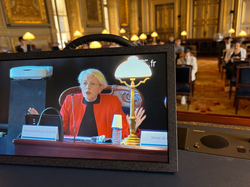
♾️follow Marie-Anne Frison-Roche on LinkedIn
♾️subscribe to the Newsletter MAFR Regulation, Compliance, Law
____
► Full Reference: M.-A. Frison-Roche, "Compliance, Artificial Intelligence and Business Management: the right measure" ("Compliance, Intelligence artificielle et gestion des entreprises : la juste mesure"), participation to the Conference coordinated by Mustapha Mekki, L'intelligence artificielle et la gestion des entreprises. July 1st, 2022.
____
🎥 see the conference (in French)
____
consult the slides having been used as brief notes for deliver the lecture (inf French)
____
🚧read the bilingual Working Paper having been used as basis for this conference
____
📝This work will be the basis for an article.
____
► Summary of the Lecture: Of the next European Regulation on artificial intelligence, the European Commission has a quite neutral conception of AI for obtaining a consensus between the Member States, while the Regulators and certain States have a more substantial conception of technology, wanting its power to be used to protect people, firstly from these new tools themselves, secondly from what is an amplification of the evils of the classic world, such as hate or misinformation. This is the reflection of two conceptions of Compliance.
Firstly, Compliance can be defined as neutral processes that increase the effectiveness of what would be the obligation for companies or their desire for efficient risk management (in particular the consideration of "legal risks") to prove being "conform" to all regulations that are applicable to itself and all persons to whom the firm is accountable. This is often referred to as the "compliance obligation" or "obligation of conformity".
This conception implies considerable practical consequences for the company which, in order to succeed in this "total exploit", would then have to resort to artificial intelligence tools constituting a "total and infallible solution", which mechanically generate for it the obligation to "know " all the "regulatory mass", to detect all "non-compliances", to conceive its relationship to the Law in terms of "risk of non-compliance", fully supported by Compliance by Design which could, without human intervention , eliminate legal risk and ensure "compliance total efficiency" in Ex Ante.
The "legal price" of this technological dream is extremely high because all the "regulatory" requirements will then be transformed into obligations of result, any failure generating liability. The Compliance probationary system will become overwhelming for the company, both in terms of burden of proof, means of proof, and transfers, without exemption from proof. Objective responsibilities for others will multiply. The "law of conformity" will multiply Ex Ante systemic penalties, the border with criminal law being less and less preserved.
It is essential to avoid this, both for businesses and for the Rule of Law. For this, we must use Artificial Intelligence to its proper extent: it may constitute a "massive aid", without ever claiming to be a total and infallible solution, because it is the human who must be at the center of the compliance system functioning thank to the firms and not the machinery.
For this, it is necessary to adopt a substantial conception of Compliance Law (and not a sort of Conformity Law or Obedience Law). It does not at all cover all the applicable regulations and it is not at all "neutral", being in no way a series of processes. This new branch of Law is substantially built on Monumental Goals. These are either of a negative nature (preventing a systemic crisis from happening, in many but specific perspectives: banking, financial, health, climate, etc.), or of a positive nature (building a better balance, in particular between human beings, in the company and beyond).
In this conception which appears more and more strongly, artificial intelligence finds its place, more modest. As Compliance Law is based on information, Artificial Intelligence is essential to capture it and make first connections, first stages for successive analyses, done by human beings, making what is essential: the commitment of the company, both by the leaders and by all those who are "embarked" by a "culture of Compliance" which is at both built and common.
This restores the required seal between Criminal Law and what can be asked of the mechanical use of Artificial Intelligence; this puts the obligation of means back as a principle. This restores the principal place to the lawyer and the compliance officer, so that the culture of compliance is articulated with the specificities of a sector and the identity of the company itself. Indeed, the culture of compliance being inseparable from a culture of values, Compliance by design requires a dual technique, both mathematical and legal culture. It is why European Compliance Law, because it is rooted in the European humanist tradition, is a model.
________
For further:
📘Frison-Roche, M.-A. (ed.), Compliance Monumental Goals, 2022
📘Frison-Roche, M.-A. (ed.), Compliance Jurisdictionalisation, 2022
📘Frison-Roche, M.-A. (ed.), Compliance Tools, 2021
📓Frison-Roche, M.-A., L'apport du Droit de la Compliance à la Gouvernance d'Internet, 2019
📕Frison-Roche, M.-A. (ed.), Pour une Europe de la Compliance, 2019
📕Frison-Roche, M.-A. (ed.), Régulation, Supervision, Compliance, 2017
📕 Frison-Roche, M.-A. (ed.), Internet, espace d'interrégulation, 2016
📝 Frison-Roche, M.-A., Compliance Monumental Goals, beating heart of Compliance law, 2022,
📝 Frison-Roche, M.-A., Role and Place of Companies in the Creation and Effectiveness of Compliance Law in Crisis, 2022
📝 Frison-Roche, M.-A., Assessment of Whistleblowing, and the duty of Vigilance, 2022
📝Frison-Roche, M.-A., Drawing up Risk Maps as an obligation and the paradox of he "compliance risks", 2021
__________
June 9, 2022
Conferences

► Référence générale : Frison-Roche, M.-A., Droit de la Compliance et Cloud souverain, in Souveraineté numérique : quelles solutions pour quels problèmes ? , Association Master 2 Droit du Commerce Électronique et de l’Économie Numérique (M2 DCEEN), Université Panthéon-Sorbonne (Paris I), 9 juin 2022, 18h-20h.
____
____
Cette intervention s'insère dans un débat coordonné par la professeure Judith Rochfeld, auquel participent également Monsieur le Député Philippe Latombe et Céline Heller (société Google).
Pour ma part, interrogée en premier pendant un 1/4 d'heure, il s'agissait en premier lieu, avant de participer à la discussion générale, de répondre aux trois questions suivantes :
- Quelles définitions doivent être retenues pour la souveraineté numérique ?
- Quel est le rapport entre souveraineté numérique et droit de la compliance ?
- Plus largement, quelle place le Droit doit-il occuper dans la souveraineté numérique selon vous ?
- En quoi la souveraineté numérique est-elle un but monumental ?
____
May 9, 2022
Conferences

► Référence complète : Frison-Roche, M.-A., L'hypothèse des causes systémiques, in L'office du juge et les causes systémiques, in Cycle de conférences, Penser l'office du juge, Grand Chambre de la Cour de cassation, 9 mai 2021, 17h-19h.
____
📅 voir la présentation générale de la conférence.
►Place de l'intervention dans la conférence : la conférence générale s'articule sur l'intervention d'introduction qui pose ce qu'est une cause systémique, hypothèse à partir de laquelle interviennent trois juges, Christophe Soulard, Fabien Raynaud et François Ancel, qui réfléchissent et débattent entre eux sur cette hypothèse.
L'hypothèse est qu'au-delà et à travers la diversité des contentieux et des causes qui sont soumises aux juges les plus divers, il existe une catégorie de causes qui ont en cause d'être systémiques, c'est-à-dire de contenir dans ce qui est soumis au juge pour résolution un système. Si une telle catégorie existe, ce qui pose d'ailleurs la question de la diversité des systèmes et la difficulté née de leur soumission à des règles qui ne sont pas juridiques (par exemple des "lois" économiques, biologiques, financières, etc.), alors le juge devrait en tenir compte, et dans la procédure et dans le jugement qu'il porte sur la cause et dans la façon dont il restitue ce jugement.
____
🎥Voir la vidéo de l'ensemble de la conférence
🎥Voir la vidéo de l'intervention de Marie-Anne Frison-Roche présentation l'hypothèse des causes systémiques
🎥 Voir la vidéo de la synthèse de la conférence par Marie-Anne Frison-Roche
____
Lire les slides à l'appui desquelles l'intervention a été faite.
► Résumé de l'intervention :
____
🚧Lire le document de travail sur lequel est basée l'intervention
________
April 15, 2022
Conferences
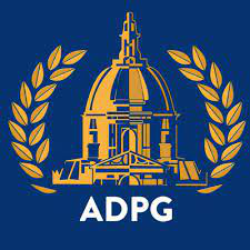
 ► Référence complète : Frison-Roche, M.A., La fonction sociale du Droit de la Compliance, Table-ronde "Les nouvelles formes d'un Droit embrassant son rôle de régulation", in📅Association du Master de Droit privé de Paris I (ADPG), Le rôle de régulateur social du Droit privé, Paris, 15 avril 2022.
► Référence complète : Frison-Roche, M.A., La fonction sociale du Droit de la Compliance, Table-ronde "Les nouvelles formes d'un Droit embrassant son rôle de régulation", in📅Association du Master de Droit privé de Paris I (ADPG), Le rôle de régulateur social du Droit privé, Paris, 15 avril 2022.
____
📅Lire le programme général du colloque
____
► Présentation générale de la conférence : En raison de la conception générale de la journée, ancrée dans le "Droit privé", mais qui oscillait en permanence sur la définition générale de ce qu'est la "régulation sociale" et qui est constitué depuis plus de vingt ans dans une branche du Droit spécifique, le Droit de la Régulation, parce qu'on m'avait demandé de présenter La fonction sociale du Droit de la Compliance, à un public sans doute peu averti du Droit économique, j'ai procédé de la façon suivante :
Je suis partie du souci actuel accru de savoir si le Droit peut avoir une part pour contenir les forces qui régissent le monde et s'y affrontent. Je suis partie de deux cas pratiques. Le premier irait plutôt vers une réponse positive, est celui de l'adoption en cours du Digital Services Act, législation européenne de Compliance qui utilise la puissance des opérateurs numériques cruciaux qui prévenir et lutte contre la haine et la désinformation dans l'espace numérique. Le second cas pratique qui débute est la possible prise de contrôle de Twitter par Elon Musk, opérée par celui-ci au nom de la "Démocratie" et pour l'instant le peu de contrôle que le Droit en cas.
A partir de de ces deux exemples, j'ai repris la définition du Droit de la Compliance, qui n'est pas la procédure par laquelle certains opérateurs devraient montrer qu'ils respectent la totalité des règles qui leurs sont applicables mais qui est substantiellement défini par des buts monumentaux substantiellement voulus posés par le Politique qui trouvent des alliés, volontaires ou contraints, en position de le faire. Ce Droit Ex Ante porte sur le futur, est de nature systémique et utilise des moyens qui traversent toutes les branches du Droit, notamment le contrat et la responsabilité.
Le Droit de la Compliance est le prolongement du Droit de la Régulation. Il opère une régulation sociale et présente trois caractéristiques. Il est forcément mondial. Il est forcément politique. Il est forcément humain.
____
Pour aller plus loin⤵️
📝Le droit de la Régulation, 2001
📝Le Droit de la Compliance, 2016
March 31, 2022
Conferences

 ► Référence complète : Frison-Roche, M.A., Ex-Ante Compliance, in Gaia-X, Towards Automated Compliance in the Data Economy, 31 mars 2022.
► Référence complète : Frison-Roche, M.A., Ex-Ante Compliance, in Gaia-X, Towards Automated Compliance in the Data Economy, 31 mars 2022.
_____
► Voir le programme (en anglais)
____
► Présentation générale de l'intervention : (en anglais)
This intervention before the Board of Gaia-X is built on four observations about the evolution of the European legal system, showing how it is in favor of Gaia-X, articulated with an article on Ex Compliance Law and Labelling mechanisms, co-written with Martine Gourié and Hubert Tardieu.
The principal idea of this speech is to show that if Competition Law and Compliance Law are two different branches of Law, they are articulated. More now than before, and certainly they will be increasingly articulated.
As I shall show it, the European Institutions develop both as two pillars, notably through the Digital Markets Act (DMA) for Competition Law and the Digital Services Act (DSA) for Compliance Law.
The European Union does not have to choose between Compliance and Competition: the European space is built on both, for instance Flexibility through the principle of free Competition and Sustainability through the principle of Compliance.
The speech develops 4 remarks.
1. Compliance Law is not appropriation of legal rules by private sector. The first principles are always made by Legislators (European and National public rule makers, in our case) and everything must always be challenged before courts.
2. Competition Authorities want to increase the efficiency of Competition Law, bringing Competition Law to Compliance Law. They always do (see European Commission, Compliance matters, 2013). Moreover, this is the object of the Digital Markets Act, putting Competition Law from Ex Post to Ex Ante concernant the digital space. It is a revolution, but the purpose of Competition Law does not change: Compliance Legal tools are implemented by this so important Act, but it is always free and fair competitive markets. The purpose is to obtain to obtain more efficiency without change the substantial goal.
3. But the European Union is moving to a more substantial Compliance Law, by the Digital Services Act, the twin of the DMA. This more political text wants to impose safety in the digital space and protect users' rights in Ex Ante, by Compliance. This is a Monumental Goals, to obtain a European sovereignty. This political ambition is served by the private sector. It is impossible to apprehend DMA without consider DSA: they are twins. Their articulation will be protected by courts and explained to them.
4. They illustrated a more general European evolution. Two examples: the Trans-Atlantic Data Privacy Transfer Framework, articulating free flow of data and effective protection of individuals, and the proposal of European directive for a Corporate Sustainability Due Diligence, with Compliance Ex Ante mechanisms, public authorities helping and supervising private sector fighting human rights' violations and climate change in the perspective of sustainable economy.
Because at the end of the day, the future of Europe is in common values, protected by courts.
____
Pour aller plus loin⤵️
March 29, 2022
Conferences
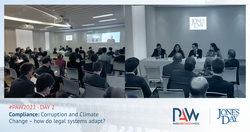
 ► Full reference: Frison-Roche, M.A., The part of Compliance Law in the fight against Corruption and Climate Change, in Paris Arbitration Week (PAW), Compliance: Corruption and Climate Change - how legal systems adapt?, Jones Day, March 29, 2022.
► Full reference: Frison-Roche, M.A., The part of Compliance Law in the fight against Corruption and Climate Change, in Paris Arbitration Week (PAW), Compliance: Corruption and Climate Change - how legal systems adapt?, Jones Day, March 29, 2022.
Debate with Mathias Audit coordinated by Claire Pauly, Vice-President of the Paris Arbitration Week.
____
► Presentation of the intervention: After the presentation made by Mathias Audit of the consideration of facts of corruption, notably by the red flags method, in an arbitration trial, it seems a low-performing system of proof in compliance: the more diligent a party is in showing that it tried to meet its compliance obligations, the more it is exposed to demonstrating its own failure to doing so. It seems a perversity … Therefore, I can understand why companies often so dislike Compliance Law because more they make efforts, more they put money and more they are punished…
But this representation is not totally exact.
My first observation is about the definitions themselves. It is particularly important to have a precise definition of “compliance obligations”, to not confuse them with obligations coming from Criminal Law. The confusion between Criminal Law and Compliance Law is frequent, maybe because what Compliance Law want to eradicate is also prohibited by Criminal Law, for instance corruption. Indeed, technically criminal legal rules and compliance legal rules have many points of contacts, but they are not the same: the obligations are different, the legal persons obliged are different, the reasoning are different the purposes are different.
Because the general definition of Criminal Law and Compliance Law are different. Criminal Law, very old branch of Law, which prohibits and sanctions corruption, does it for everyone because the singular behavior is wrong (to corrupt; to be corrupted). Compliance Law is a very new branch of Law, is a systemic branch of economic Law, which wants to eradicate in the future mechanisms because they destroy economic systems, such as corruption does. Its wants that not to protect moral values but to protect economic systems. Therefore, Compliance Law asks some entities, large companies, to do something only because they are in position to do so: to detect and to prevent this corruption, in order to obtain in the future, the protection against this systemic risk threating the economic systems. The compliance legal tools are more in Ex Ante than in Ex Post: risk mapping, audit, code of conduct, training, obtention of information through the chains of suppliers.
The proof to give is not the non-corruption everywhere from everyone but this concrete action of prevention and education, companies being entities helping public authorities in this global fight.
More precisely, in this definition Compliance Law is not the general obligation to obey the regulations applicable (because this is simply the definition of Law itself, applicable to everybody). Compliance Law is a very new branch of Law which exists only for some systemic “global policies” (as the title of your manifestation says) applicable only on systemic entities (large companies) in a global perspective: for instance, fighting corruption, fighting money laundering, fighting climate change, fighting discrimination between human beings.
In your example, for fighting corruption, specific legal obligations are taken, such as FCPA (with extraterritorial effects) or in French legal system the so-called the 2016 “Sapin 2” Law. These obligations don’t concern everybody: they concern entities in position to do so: large companies.
My second remark is about the burden of proof. These compliance obligation or compliance duties are obligations of means. Companies are obliged to adopt Compliance plans, organize risk mapping, and so on. A lot of them organize them through code of compliance, or code of ethic, or code of corporate social responsibility, because Compliance Law is in an intimacy with Corporate Law. Because Compliance Law is a very concrete branch of law, these disposals are adopted at the level of the group and replicated in the contracts with suppliers.
But he success of these compliance tools is only an obligation of means. For instance the supervisory authority does not require the company to have seen all the risks, in their existence or their exact quantification. In this sense, about money laundering, the French Financial Markets Authority said that the setup of these compliance tools must be “effective”, but after that the company must only do its “best efforts” to aim an “efficient” result (obligation de moyens). The French Regulatory Authority for the digital space says the same about the eradication of speeches of hate that Compliance Law oblige digital companies to fight (using the term of obligation de moyens).
Moreover, about corruption, the Commission of sanction of the French Anticorruption Agency said in a decision of July 2019 that the firm is free to choose the technics to detect and to prevent the corruption (confirming that Compliance is not just following what the Regulator says), but offered a legal certainty: if the company just follows what the Regulators had said in its guideline (rule based compliance behavior), it is no more possible to punish it.
My third remarks could be a proposal for a more efficient system of proof. It is true that the burden of proof is on the company’s shoulders. But the object of proof is not the absence of corruption (it would not be possible…). The object of proof is the existence of due diligence to detect and prevent corruption.
Companies must prepare that, must constitute these proofs by advance. “Due diligence” is a legal concept frequently used in Compliance Law. Regulators, supervisors, and courts ask companies to show the reality of these diligences. It would not be sufficient to present the cost of Compliance… It will be sufficient to show the effectivity of Compliance programs freely adopted, taking in consideration the guidelines released by public authorities.
Public authorities say they want to help companies to diffuse an effective “culture of compliance” : a dialogue with civil and corporate courts, not only with criminal courts would be efficient, for instance for the protection of human rights.
In a second part of this debate, on Climate change and Compliance, Claire Pauly asked the question: "My question is two-fold: do you consider that climate change issues should be treated in the same way as corruption issues? And do you think that arbitrators are well suited to tackle those issues, by upholding the method applied to determine and demonstrate corruption issues?".
The response has been:
Firstly, on the technical similarity between fighting Corruption and fighting Climate Change in Compliance Law, it is the same perspective effectively.
If we come back to the definition of Compliance Law, the Compliance tools are organized to obtain in the future systemics results, such as no more corruption, no more money laundering, what we can name “Monumental goals”. This is a political decision: to design the future for excluding some systemic catastrophes. Corruption is an example of systemic risk; but climate change is another one.
Fighting against Climate Change is a Monumental Goal, of the same nature than fighting Corruption.
As everyone knows, we suffer of a lack of tools to address one of this fundamental challenge of our times which is climate change (more difficult than corruption...). But we are lucky to have some Compliance legal tools: we need to use them, because we have so few techniques about this Climate issue…
And Compliance Law is the more adequate branch of Law because it is an Ex-Ante branch of Law : generally, its obligations are on the future, and the Climate change drama is in the future also.
We can already see that Compliance Law is applicable to Climate Change issue
It is easy to see it through the legal techniques.
In the French legal system, the Sapin 2 law invented in 2016 some new compliance techniques, such as risk mapping, audit, due diligence, to detect and prevent corruption.
One year after, in 2017, the so-called Loi Vigilance took the same techniques, copying exactly the legal dispositions of Sapin 2 in this law to oblige large companies to detect and to prevent violation of human rights and environmental obligation, not only inside the corporate group but also through the supply chains. The manager will be accountable for that.
On February 23, 2022, the European Commission adopted a proposal for a European Directive in the same direction of a “global policy” to impose a “corporate sustainability due diligence” on large companies, notably for fighting climate change. This new text will be effective in two years in the Internal legal systems.
By a rules-based analysis and a principle-based analysis, we can see this is the same reasoning.
Of course, this “corporate sustainability due diligence” is only an obligation of means.
But it is extremely ambitious, linked to the direct consideration of the Corporate Social Responsibility.
And I guess it will be efficient because all these tools are not only Ex Post but also Ex Ante: when the issue is to exclude the catastrophic perspective of the disappearance of the humankind on our planet, having Compliance Law, this Ex-Ante branch of law, is so precious!
Secondly, about the role of Arbitration in this issue, I am tempted to say: everyone is required in this global crucial policy!
It is quite difficult for a national court to decide on this sort of issue because Climate change is a global issue, while arbitrators are global judges.
Technically it is necessary and technically possible that Arbitration takes its place, because these due diligences about detection, prevention, action for a better Climate balance are organized non only in corporate mechanisms, such as code of conduct, corporate commitments, or manager remuneration calculation, but also a lot of contractual dispositions.
We will see a lot of new legal techniques: a lot of international public global policies will be adopted. The obligation to give information about that not only to investor but also to stakeholders will be adopted worldwide. The technique of “compliance by design” will be used on the corporate policy of fighting against Climate change.
Meanwhile, the classical branch of law, were Compliance Law steps in, will remain active, such as International Law, Corporate Law, Tort Law Contract Law, where Arbitration is so central.
So, in short, your question was: are Arbitrators able to deal with climate change issue? my response is: “oh, yes!”
____
► Read the repport made by the fait par la Paris Week of Arbitration ( on the distinction between Compliance Law and Criminal Law, and their articulation)
____
Pour aller plus loin⤵️
📘Frison-Roche, M.-A. (ed), Compliance Monumental Goals, 2022.
📘Frison-Roche, M.-A. (ed), Compliance Jurisdictionalisation, 2022.
________
March 17, 2022
Conferences

► Référence complète : Frison-Roche, M.-A., L’appréhension du risque climatique par les acteurs privés : les apports du droit de la compliance, in Marta Torre-Schaub M., Lormeteau, B. et Stevignon, A.(dir.), Les risques climatiques à l’épreuve du droit Comment le droit fait-il face aux nouveaux risques engendrés par la crise climatique ? , Université Panthéon-Sorbonne (Paris I), Amphithéâtre Liard, 17 mars 2022.
acteurs privés : les apports du droit de la compliance, in Marta Torre-Schaub M., Lormeteau, B. et Stevignon, A.(dir.), Les risques climatiques à l’épreuve du droit Comment le droit fait-il face aux nouveaux risques engendrés par la crise climatique ? , Université Panthéon-Sorbonne (Paris I), Amphithéâtre Liard, 17 mars 2022.
____
► Consulter le programme général de la manifestation
____
► lire le Document de travail ayant servi de base à cette conférence : Prévention et gestion du risque climatique par le Droit de la Compliance
____
► Résumé de l'intervention : Cette intervention a été placée dans une construction qui la place comme une analyse plus particulière de ce qui serait une "insuffisante appréhension des risques climatiques par le Droit". Peut-être que le juriste estime que le Droit fait toujours une "insuffisante appréhension" de tout, parce qu'il voudrait aussi se saisir de tout, mais ne faut-il pas estimer que le Droit, ici le Droit de la Compliance ne vise pas tout, qu'il est au contraire particulièrement adéquat sur un sujet comme le Climat et qu'en la matière il fait déjà beaucoup ?
Etant acquis qu'une société où le Droit serait tout et dicterait tout ne ferait plus place à la liberté, où les règles ne sont pas là pour nous dire à chaque instant et partout ce que nous devons faire, c'est dans ce souci-là qu'il faut trouver la bonne place que doit avoir le Droit de la Compliance, place qui tient à la définition qu'il faut donner à celui-ci.
Préalable : présentation de ce que doit être le "Droit de la Compliance"
Pour que le principe de liberté demeure il faut que le Droit de la Compliance lui-même exprime des Principes et non pas une masse réglementaire, ce qui étouffe les libertés. Si l'on réduisait le Droit de la Compliance à l'idée étroite de l'efficacité apportée à la masse réglementaire qui nous est applicable, par exemple obéir à la réglementation relative à l'environnement et au Climat, alors nous serions devant un choix dramatique : soit sauver la planète, soit sauver notre liberté. C'est parfois ainsi que l'Avenir nous est présenté.
Mais c'est supposer que le Droit de la Compliance serait défini comme l'accumulation de toutes les réglementations qui nous sont applicables et dont nous devrions montrer par avance et à tous que nous plions devant elles, devant toutes et chacune, aveuglement, le robot étant ainsi notre exemple du bon sujet de Droit de la Compliance. C'est souvent ainsi que ce qu'on appelle alors le "Droit de la Conformité" est défini : nous sommes obligés de nous conformer, et de donner à voir que nous nous conformons, et que nous nous conformons par avance, à toutes les réglementations cumulées et confondues, qui nous concernent. Par exemple celles sur le Climat. Parmi d'autres. Comme les autres. Pas moins mais pas plus. Certes nous ne serions alors pas plus libres que ne le sont les robots, mais la question du Climat pourrait être résolue ...Quelle triste perspective .... L'efficacité de la réglementation aurait donc balayé notre liberté, dont la liberté d'entreprendre n'est qu'un des modes.
L'on voit bien que la question est avant tout une question de définition.
Plutôt que d'aller vers cet "apport catastrophique" que constituerait alors le Droit de la Compliance à la résolution des enjeux climatiques, puisqu'en échange de son efficacité nous devrions rendre nos libertés, allons vers ce qui doit être la définition du Droit de la Compliance et l'apport que ce Droit de la Compliance-là est en train d'opérer au bénéfice du risque climatique. Peut-être d'une façon insuffisante, mais d'une façon déjà considérable.
il apparaît alors que le Climat est un exemple qui va aller grandissant des Buts Monumentaux du Droit de la Compliance (I). Cela justifie l'alliance entre les Autorités politiques et les "acteurs privés" pour que l'avenir se concrétise dans un équilibre systémique, ici l'équilibre climatique (II), justifiant la mise en place de mécanismes juridiques nouveaux par rapport au Droit traditionnel.
____
► Pour aller plus loin :
👩🏫📕Les buts monumentaux de la Compliance, 2022
👩🏫📝 Les Buts Monumentaux, cœur battant du Droit de la Compliance, 2022,
👩🏫🎥 Cas climatique, devoir de vigilance et pouvoirs des juges, 2021
👩🏫🚧 Concevoir les pouvoirs, 2022
👩🏫🚧 La Responsabilité Ex Ante, 2022
👩🏫📓Environnemental Compliance Law, as an Ex Ante Responsability, 2021
👩🏫🎥 Devoir de vigilance des entreprises : vers un Droit de la responsabilité Ex Ante, 2021
________
March 10, 2022
Conferences

► Référence complète : Frison-Roche, M.-A., "Secrets professionnels : spirale d'une importance accrue et d'un affaiblissement fulgurant", participation à la Table-Ronde sur le thème du secret professionnel, in Comité de Liaison des Institutions Ordinales (CLIO), Secret professionnel et indépendance : deux leviers, garants de l’efficacité et de la confiance envers les professions réglementées, 10 mars 2022.
Cette Table-Ronde est animé par Fabrice Lundy, journaliste à Radio-Classique ; y participent également Jean-Luc Sauron, Conseiller d'Etat et Jacques Lucas, Président de l'Agence du Numérique en Santé.
____
►Lire la synthèse écrite du colloque
____
► Revoir la vidéo de la table-ronde
____
► Résumé de l'intervention : Le thème du secret professionnel est appréhendé comme illustration du rôle essentiel joué par les Ordres professionnels dans le monde d'aujourd'hui (le colloque traitant dans un second temps de la question de l'Indépendance).
Avant toute participation active au débat proprement dit, l'intervention a pour utilité de présenter le Secret professionnel en lui-même, puis en quoi le monde actuel apporte des éléments nouveaux au besoin impératifs de celui-ci, dans le même temps qu'il le met particulièrement en difficulté.
I. LA PERMANENCE DES SECRETS PROFESSIONNELS
Le Secret professionnel, comme tout secret, porte sur une information. C'est une information qu'une personne a sur elle-même ou sur une autre, et qui potentiellement peut mettre cette personne en danger, ou la fragilise, ou l'expose, la constituant en situation de faiblesse par rapport à autrui : l'information peut concernant son état de santé, sa filiation, un acte dont un autre pourrait se prévaloir pour la punir plus tard.
Cette information, que la personne garde pour elle ou qu'elle partage avec peu de personnes, elle va la confier à un "professionnel". Pas n'importe quel professionnel : un professionnel en qui elle a confiance, non seulement parce qu'elle croît qu'il est techniquement compétent (un avocat qui connait le Droit, un médecin qui connait la Médecine) mais parce qu'elle croit qu'il va lui aussi garder pour lui cette information sur la faiblesse de son client, malgré le profit qu'il pourrait tirer de la communiquer à d'autres (presse, juge, voisin de table dans un diner, etc.). C'est donc la confiance que la personne en situation de faiblesse a dans le titre même de la personne, parce qu'il est "avocat" ou "médecin" ou "infirmier", etc., qu'il donne cette information, car il sait que parce qu'il est médecin (et pas seulement parce qu'il connait la Médecine), qu'il garde ce secret. Ainsi ce n'est pas le diplôme comme signe de compétence mais le titre comme signe d'appartenance à une profession qui garde les secrets qui est considéré : c'est pourquoi la profession va pouvoir valoriser cette garde des secrets au-delà des frontières par des associations (American Bar Association, par exemple), si elle peut crédibiliser cela (Ordre et secret sont intimes).
Le rapport que le professionnel, nouveau titulaire de l'information, a avec celle-ci découle de cela. Le professionnel est le "gardien" de l'information. Il n'en dispose pas : la personne concernée lui a confié non pas tant l'information que "la garde de l'information". Il exerce donc sur ce secret, c'est-à-dire le fait de ne pas révéler à autrui l'information, un pouvoir📎
Cette conception juridique est stable depuis que les professions, notamment les professions libérales, existent : ce n'est pas par les compétences techniques, ni même par le lien personnel, que le secret professionnel se noue : c'est par l'appartenance à une profession : c'est donc par l'organisation même de cette profession et la crédibilité de celle-ci, le contrôle à l'entrée de qui y entre et doit en sortir en cas de manquement, l'effectivité, l'efficacité et l'efficience de la discipline.
Tout cela n'est pas remis en cause. Au contraire, plus l'Etat a des difficultés en raison de la disparition des frontières et plus cette structure devient en pratique pertinente.
____
Mais le choc vient d'ailleurs. Il faut du fait que précisément si les secrets que nous avons tous en nous et que nous voulons tous donner à garder n'ont pas changé, en revanche le monde dans lequel nous vivons a changé : ce monde est devenu numérique.
II. LE CHOC DU NUMERIQUE SUR LES SECRETS PROFESSIONNELS ET L'URGENCE DE LES ACCROITRE
Or, par cette transformation totale du monde dans lequel nous vivons les secrets n'existent plus, les secrets professionnels pas moins mais pas plus que les autres.
Il faut mais il suffit qu'une "fuite" apparaisse dans l'espace digital et l'information est disponible à la fois partout et en un instant : la viralité est la loi naturelle de l'espace numérique qui recouvre le monde.
L'on peut s'en réjouir, parce que l'information est un bien commun, que nous sommes dans un marché de l'information, une économie de l'information, une société de l'information, une civilisation de l'information.
Si l'on est plus mesuré, l'on dira que certaines informations doivent être gardées par ceux qu'elles concernent et dans le cercle choisi des personnes qui ont leur confiance : c'est l'invention européenne des "données à caractère personnel", qui recoupent largement les secrets professionnels.
Pour l'instant, le Droit tâtonne tant la situation est nouvelle ...
Tout d'abord, le Droit est dans une sorte d'adoration de l'information disponible sur tout, partout et pour tous... Il y développe des principes comme le "droit à l'information" (sans contrepartie financière), le "droit d'alerte" (vite confondu avec le droit de divulguer publiquement, qui n'existe pas ab initio n'apparaissant qu'en cas d'échec du mécanisme d'alerte, le "droit à la transparence" (qui méconnait l'idée même de droits de la défense) qui vont aller de plus en plus contre les secrets, même professionnels.
Ensuite et surtout, la technologie numérique, qui a structuré l'espace numérique fait qu'une information à l'instant où elle est mise dans cet espace est diffusée immédiatement, partout et demeure disponible pour toujours.
Dès lors, l'on peut toujours continuer à affirmer le principe des secrets professionnels, ceux-ci n'ont plus d'effectivité.
Or, et c'est lors le paradoxe, l'espace numérique non seulement n'a pas diminué la fragilité des personnes, fragilité compensée par la confiance dans la garde des secrets conservés par les professionnels ; au contraire le numérique a accru cette fragilité.
Les revenge porn ou les meurtres en direct en sont un exemple : la personne est encore plus fragile dans l'espace numérique. Les "discours de haine" sont un enjeu majeur, non seulement pour la personne qui en est la victime mais pour le système lui-même puisque, comme le démontre Thimothy Snyder c'est aujourd'hui le système démocratique qui peut chuter.
La "désinformation" peut partir d'une violation d'un secret professionnel, car il peut s'agir d'une information exacte exploitée à des fins nocives, constituant alors une infox, le conspirationnisme étant un phénomène lié au numérique.
Que peut faire le Droit ?
Il peut aller dans deux directions :
Tout d'abord armer davantage les structures classiques : Ordres professionnels, police, Autorités de poursuites et Juridictions.
Ensuite, internaliser dans les opérateurs numériques cruciaux, notamment les plateformes, le devoir de bloquer en Ex Ante la diffusion des informations qui doivent demeurer secrètes (données à caractère personnel, et secrets) : c'est le "Droit de la Compliance".
L'exercice de ce devoir par les entreprises numériques cruciales est lui-même supervisé par des autorités publiques : en France, la CNIL et l'Arcom.
De nouveaux textes sont en cours d'adoption pour obliger les entreprises cruciaux de veiller à ce que les secrets ont préservés. C'est l'un des enjeux du Digital Services Act, Réglement de l'Union européenne en cours de discussion.
L'avenir est certainement dans un rapprochement entre les structures classiques, notamment les ordres et ses Autorités publiques de supervision.
Le Droit de la Compliance, nouvelle branche du Droit Ex Ante qui concrétise la garde des secrets peut être une solution dans cette situation à la fois très nouvelle et très préoccupante.
____
► aller à la présentation d'une précédente participation au colloque annuel du CLIO : La déontologie professionnelle dans un monde ouvert et concurrentiel
► voir la publication qui s'en suivit.
___
► pour aller plus loin :
👩🏫Frison-Roche, M.-A., 📝Les droits subjectifs, outils premiers et naturels du Droit de la Compliance, in Frison-Roche, M.-A., 📕Les outils de la Compliance, 2021
👩🏫Frison-Roche, M.-A.,💬 "Et si le secret de l'avocat était l'allié de la lutte contre le blanchiment ?", 2020
👩🏫Frison-Roche, M.-A., 📕Avocats et Ordres au 21ième siècle, 2017
👩🏫Frison-Roche, M.-A., 📕Secrets professionnels, 1999
👩🏫Frison-Roche, M.-A., 📝Déontologie et discipline des professions libérales, 1998
________
Frison-Roche, M.-A., Concevoir le pouvoir, 2022.
Frison-Roche, M.-A., Concevoir le pouvoir, 2022.
Dec. 6, 2021
Conferences

🌐 suivre Marie-Anne Frison-Roche sur LinkedIn
🌐s'abonner à la Newsletter MAFR Regulation, Compliance, Law
____
► Référence complète : Frison-Roche, M.-A., "Cas climatiques, devoir de vigilance, pouvoir des juges", dans la participation à la table rond "Notre planète brûle ; quels leviers d'action pour les entreprises et les Etats ?", in Paris Legal Makers, 6 décembre 2021.
____
► Consulter le programme général de la manifestation
____
► Revoir la vidéo de la table-ronde
____
► Résumé de l'intervention : Le débat d'une heure a porté sur les enjeux climats et la façon dont ceux qui font le Droit peuvent contribuer aux réponses que les entreprises et les État y apportent.
A ce titre et interrogée précisément par la journaliste sur le mouvent, j'ai mentionné que la population du monde entier s'adresse directement aux tribunaux qui ne les accueillent et appliquent un Droit en formation dans des législations à portée globales. Pour ne prendre que l'année 2021, dans des décisions sensationnelles, le Tribunal constitutionnel allemand dans sa décision du 29 avril 2021 a déclaré une loi votée par le Parlement allemand contraire à la Constitution, alors même qu'elle avait pour objet la lutte contre le changement climatique car elle laisse ouvert la possibilité pour l'État de ne rien faire avant 2030, alors même que les études scientifiques ont établi que l'inaction totale était l'assurance de la catastrophe climatique. L'alliance de la science et du Droit, la reconnaissance des droits subjectifs présents des générations futures (puisque leur sort aurait donc pu être déjà scellé) a conduit à cette solution.
Le mois suivant, le Tribunal de La Haye a condamné le 26 mai 2021 l'entreprise Shell à réduire de 45% ses émissions émission de gaz à effet de serre d’ici 2030, puisqu'elle s'y était engagée dans ses documents publics. En s'appuyant sur les textes de responsabilité, c'est une responsabilisation de l'entreprise et non pas un dédommagement pécuniaire : c'est de l'action concrète future qui est requise.
Le mois suivante, le Conseil d'État français dans sa décision Grande Synthe s'est appuyé sur la reprise par la France dans sa législation (loi de programmation) des Accords de Paris pour lui enjoindre de respecter sa propre législation, en suivant sa "trajectoire", la notion de transition étant nécessaire dans les questions climatiques et le Droit de la Responsabilité Ex Ante qui est en train de se mettre en place.
La suite du débat a mis en lumière l'importance du nouveau "devoir de vigilance" qui pèse sur les entreprises, notamment dans les enjeux climatiques.
Interrogée sur ce point, j'ai relevé que le Ministre des Affaires étrangères avait lui-même en ouverture de la journée souligné l'importance de la loi dite "Vigilance" de 2017 et de la prochaine directive en la matière. Effectivement, c'est un devoir qui engage une responsabilité, dont le Conseil constitutionnel a souligné qu'elle était personnelle et non pas pour autrui.
C'est à court terme une mauvaise nouvelle pour les entreprises mais à moyen ou long terme c'est aussi un moyen pour elles de jouer un rôle au niveau global, d'assurer un rôle plus important, d'obtenir des informations de la part des entités dont elles répondent, de changer de niveau, de faire une alliance avec les Autorités publiques et politiques. C'est cette nouvelle Compliance, notamment environnementale, calquée sur la loi dite "Sapin 2", qui n'est qu'un exemple du Droit de la Compliance, lequel est le Droit du Futur, le Droit par lequel le Futur est appréhendé par l'action, l'obligation d'agir ou la volonté d'agir.
Il est vrai que cela change leur gouvernance, notamment dans l'organisation probatoire, puisque les personnes qui leur demande des comptes n'ont plus la charge que de la "vraisemblance" et non plus tant de la preuve, et c'est un nouveau système probatoire qui se met en place, où les legal makers ont toute leur place dans le quotidien des entreprises.
Les Juges interviennent à la demande directe de la population. On leur reproche de répondre mais on leur en voudrait sans doute de ne pas le faire, ils veillent à toujours se référer aux "engagements" soit des entreprises (Shell), soit des Etats (Grande Synthe) ; sans doute anticipent-ils les textes de demain, qui arrivent (comme la directive sur la vigilance).
________
Dec. 3, 2021
Conferences
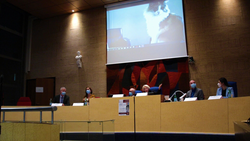
 ► Référence complète: Frison-Roche, M.A., La protection des lanceurs d'alerte et le Droit de la Compliance, Université d'Orléans, 3 décembre 2021.
► Référence complète: Frison-Roche, M.A., La protection des lanceurs d'alerte et le Droit de la Compliance, Université d'Orléans, 3 décembre 2021.
____
📅 Lire le programme de ce colloque
____
► Consulter les slides de la conférence
► Présentation de la conférence : La transposition en Droit français de la Directive européenne du 23 octobre 2019 sur la protection des personnes qui signalent des violations du Droit de l'Union ne révolutionne en rien le dispositif tel qu'il a été conçu par la loi dite "Sapin 2". Soit parce que celle-ci, qui avait consacré un chapitre complet au personnage, saisi non pas en tant que tel mais à travers sa protection, avait donc anticipé le texte européen, la Loi n'ayant donc plus rien à achever. Le titre reste d'ailleurs presque le même que celui du chapitre de la loi dite "Sapin 2 : Proposition de loi visant à améliorer la protection des lanceurs d'alerte, avec une proposition de loi organique concernant l'office accru du Défenseur des droits.
Cette sorte d'appréciation en marge de la copie de la précédente loi ("c'est bien, mais peu mieux faire"....) écarte tout vrai changement. Soit parce que s'il y avait eu quelque chose à changer, ce n'était pas tant concernant la protection du lanceur d'alerte que plutôt de ce qui avait été suggéré par beaucoup 📎
En effet, décidemment le singulier sied si peu à ce personnage qu'il faille toujours parler "des lanceurs d'alerte" et non pas du lanceur d'alerte 📎
Dans un Droit de la Compliance, entièrement construit sur les Buts, cela est particulièrement troublant.
En effet, il est acquis que, de la même façon que la cartographie des risques est l'élément objectif du Droit de la Compliance, le lanceur d'alerte est son élément subjectif : le personnage qui est là pour faire sortir de l'information.
En cela le Droit de la Compliance est le prolongement du Droit de la Régulation, lequel lutte contre l'asymétrie d'information (ce qui n'est pas l'objet du Droit de la Concurrence). Le Droit de la Compliance est d'autant plus un Droit centré sur l'information que c'est ainsi qu'il peut atteindre les Buts Monumentaux pour lesquels tous ces instruments, objectifs et subjectifs, sont institués, et dans lesquels sa normativité réside. Ainsi l'entreprise détecte l'information, rassemble l'information, diffuse l'information, etc.
Elle la fait circuler à l'intérieur, elle invite les parties prenantes extérieures à y participer, elle communique des informations internes à des agents externes de légalité. Elle le fait parce qu'elle y est contrainte, le Droit de la Compliance étant empreint d'ordre public de direction, puisque c'est pour la prévention des crises systémiques globales que ce système contraignant s'abat sur les "opérateurs cruciaux", entreprises en position de concrétiser ces buts. Ce n'est que par surabondance que leur raison d'être ou leur responsabilité sociétale peuvent venir reprendre à leur charge ces directives formulées par les Autorités publiques qui les supervisent.
Le lanceur d'alerte est donc celui qui va dans une entreprise, soit rétive, soit incapable, extraire ou transmettre une information, soit à la bonne source, soit au bon destinataire, soit lui appliquer le bon traitement. Il est donc essentiel au traitement de l'information pour que le But Monumental soit rempli.
Le lancement d'alerte au sein de Facebook est particulièrement illustratif de cela. Puisque c'est au sein de l'opérateur crucial obligé par le Droit de lutter contre la désinformation et les discours de haine que l'information apparait donc comme quoi l'entreprise ne l'a pas forcément comme premier souci. La discussion semble s'engager pour savoir si, d'une part, cela est normal ou pas et si, d'autre part, la lanceuse d'alerte est animée ou non de "bons sentiments".
Mais revenons sur le texte européen et sa transposition, par rapport à l'esprit de ce qu'est le Droit de la Compliance, notamment conçu aux États-Unis en Droit financier. La loi dite "Sapin 2" avait posé que le lanceur d'alerte doit être "désintéressé" et agir de bonne foi. Il avait été suggéré que cette exigence de désintéressement soit supprimée et la seule exigence de bonne foi, par ailleurs présumée, maintenue. Mais la conception moralisatrice du lanceur d'alerte continue de prévaloir : il y a donc deux catégories, le lanceur d'alerte qui agit par amour du Droit, du Juste et du Bon (et qu'on aime) et le chasseur de prime qui agit par amour de l'argent ou par haine de celui qu'il dénonce (et que l'on n'aime pas). Voilà donc notre pluriel explicité...
La Securities and Exchange Commission - SEC , autorité fédérale américaine des marchés financiers n'aime pas particulièrement ceux que l'on n'aime pas, les méchants haineux rapaces, mais elle lutte contre l'asymétrie d'information et c'est pour lutter contre les abus de marché dont la source même est à l'intérieur des entreprises, ce qui causa la crise de 1929 puis la Seconde Guerre Mondiale qu'elle fut elle-même instituée : chaque année, un de ses départements, qui a pour titre ..., fait le classement des récompenses attribuées aux whistleblowers , en mettant en premier celui qui a gagné le plus en lui apportant l'information d'un abus de marché, ce qui prévient une crise systémique financière. Car pour le Régulateur financier, il ne fait pas de doute que le lanceur d'alerte est un agent de la légalité qui doit servir à prévenir les crises systémiques, et doit être incité à la saisir, et à la saisir directement.
Le Législateur français reste au milieu du gué. Pour l'instant, il change la formulation mais pas trop. Il faudrait simplement que le lanceur d'alerte ne reçoive pas de "contrepartie financière directe". Ainsi l'amour de la Loi ou du prochain ("désintéressement") ne serait plus requis. S'il n'y a plus d'argent, la haine pour l'entreprise, le ressentiment, cette triste passion si bien dénoncée par Rousseau serait donc autorisée. C'est vrai, c'est souvent cela qui anime la personne qui lance l'alerte. Tandis que le filtre consistant à l'obliger à saisir l'entreprise même que par un "acte citoyen" (expression utilisée par la proposition de loi) est conservé, la proposition de loi organique accroissant un peu l'aide apportée par le Défenseur des droits.
Donc, le pas n'a pas été franchi. Parce qu'on continue à ne pas admettre ce qu'est le prix de l'information. Ce sont donc de toutes petites améliorations que le prochain état du Droit va apporter.
Après avoir ainsi examiné la réforme qui n'a pas eu lieu et qui aurait tiré conséquence de l'articulation du statut du lanceur d'alerte avec le Droit de la Compliance, en tant que celui-ci est un Droit de l'information pertinente pour atteindre des Buts Monumentaux (I), il est donc possible d'examiner la petite réforme qui va avoir lieu sans se soucier de l'information pertinente et en améliorer un peu deci delà les lanceurs d'alerte, dont la définition est un peu élargie, dans les relais externes dont ils bénéficient sans que cela ne brise leur obligation d'en parler d'abord à l'intérieur ce qui ôte la dimension directement systémique à leur action, dans l'aide financière dont ils ont soudainement le bénéfice quand à la fin des fins l'entreprise agit contre eux "en représailles" (II).
Il ne me semble pas que pour l'instant, dans un système juridique national qui sera peu changé, le lanceur d'alerte soit un personnage ni très efficace ni très choyé par le Droit français.
____
V. par exemple Frison-Roche, M.-A., 🏛️ Evaluation de la loi dite "Sapin 2" au regard d'une Europe de la Compliance, Audition par la mission d'évaluation de la loi dite Sapin 2", février 2021.
Ayant abouti à un rapport parlementaire du 7 juillet 2021.
Sur cette observation, Frison-Roche, M.-A., 📝L'impossibilité unicité de la catégorie des lanceurs d'alerte, 2020.
Nov. 30, 2021
Conferences

► Full Reference: Frison-Roche, M.-A., Legal Focus: Compliance Ex Ante, in GAIA-X, Toward Automated Compliance in the Data Economy , November 30, 2021, online
____
Listen to the intervention.
Intervention Summary: Compliance Law has two senses and GAIA-X is a perfect illustration. Firstly, to respect rules and show in Ex Ante permanently this respect (procedural definition) ; secondly, to pretend certain specific "Monumental Goals" (substantial definition).
In this second sens, Compliance Law is very different from Competition Law: it required in Ex Ante collaboration, transparency, stability to reach these Monumental Goals around the respect and protection of Humans, while Competition Law is based on fighting, mobility and trade without obligation Ex Ante, just sanction Ex Post if a prohibitive behavior occurs.
GAIA-X is based on Compliance Law, established for the purpose of a European Data Industry, a Monumental Goal linked to the Sovereignty and people's protection: it must structurally oblige its members to collabore for this goals, notably through its policy rules (first sens).
It is also a part and subject of the European Union Law. In the sense, its members must obey European Regulatory system (second sens).
The both are narrowly linked because the European legal system has the same purpose of sovereignty, internalization of goals in enterprises and individuals' protection: GDPR, Cybersecurity, Digital Services Regulation, etc. : members must show permanently they do it actively.
Because the purposes of GAIA-X and the purpose of the European Union Law are now the same in the Compliance Law the respect of letter's Law but also the respect of spirit's Law matters.
Both are Ex Ante. Therefore, Compliance by design, which is also Ex Ante, is adequate.
Automated Compliance (and automated Certification) are tools to obey and reach the Monumental Goal.
GDPR has specific dispositions (articles 24 and 42) about them, but more generally the efficiency these tools are validated by Regulatory Body, and Courts notably through the design of Smart Contrats.
It could be prudent to put in adition some human Compliance control because, by definition, an Automated Compliance is just the technological transposition (second level) of legal norme (first level) and cannot create new normes.
This is why the more important in this conception in Ex Ante of Compliance by this marriage between Law and Technology is to keep in mind not only the letters put in the algorithms but only the spirit of Compliance Law.
______
Go back to the previous intervention about Compliance Law as an adequate branch of Law for GAIA-X (November 2020)
Nov. 27, 2021
Conferences

► Full Reference: Frison-Roche, M.-A., Chair for "The temporal dimension: Imminence and Intertemporally", in Climate Change Cases before National and International Courts Cross-fertilization and Convergence", November 27, 2021, Paris.
____
Summary of the panel presentation: The specific topic of our panel is the “temporal dimension” of the judicial cases of Climate change.
We shall listen to two great experts on this topic, which is Time.
Listening the other previous speakers, I understand how this topic is important, because Climate Change requires an immediate action and it create a political issue, because everyone comes before courts.
A basis and fundamental problem, because the times are not adjusted.
let's come back to basic notions, to have three times : “past, present, future”.
The issue of Climate Change is in the Future, the necessity of Action is in the Present and the basis temporal question is to know if Courts are the bodies adequate to responde ; maybe it is inevitable that Judge must be recreate their office because the time of the classical judicial office is the Past.
Immediately, this simple et huge problem appears : in a classical repartition, the judge is the legal character to intervenir for the Past, the present (maybe is for you and me), and the future is the time for the State, and more precisely for the Parliament.
But the climate change is a huge topic, not in the past, not in the present, but in the future.
Therefore a gap exists between the time of the topic and the time of the court before the case is explained for obtaining a solution : how to give a good answer ? Judge maybe must travel in time, from past to future …. Maybe, he must, but might he?
Classically, the judge can anticipate a very next future, but not the more distant and systemic future. Climate change belongs to the second one.
This is why the title of this panel is non only about the necessity to take in consideration the “imminence” but also the “intertemporally” : maybe court are the sole able to create this intertemporality between Past and Future, and by this way to obtain from States and companies to do something immediately !
By two legal ways.
Courts can stay in Past, supervising States, if they dispose of effective legal decisions taken by States in the past about Climate Change (essentially Paris Agreement, for instance transposed in the French legal system by a formal law). This is why an efficient judicial solution would be the possibility for the courts to oblige State to implement their more or less committment they had taken in the past for the future (as the Conseil d’Etat did in the Commune de Grande-Synthe Cas Law).
Even for that, the courts must adopt a creative notion of what is a commitment from a State through a Law... ; as they must do about private companies comitment (in their codes of conduct or soft law of corporate social responsability).
But what to do if States didn’t take such commitment ?
Some can allege Courts are not Parliaments and are not legitimate to rule for the future … It is a political issue, a very classical one but very accurate for Climate change (where States and companies are face to courts...) and maybe And as our colleague said, judicial system is quite technically weak to concretize human rights.
Therefore, the second way, more innovative, est the new use of Tort Law : no more a liability Ex Post, but a responsibility Ex Ante. In every legal system, even in Civil Law systems, Tort Law is conceived by courts (for instance in French Law).
If the new reasoning is conveived in Ex Ante, Tort Law must be a set of legal tools to reach the monumental tools to reach the "Monumental Goal" (being by nature future) which is the Climate Change stopping.
In this teleological reasoning, the admissibility and the choice remedies, must be adapted to obtain what is central : the effectivity and the efficiencicy.
In this sens, the judgement between two parties (which was an Ex Post act) may be conceived as an systemic efficient action (which was an Ex Ante act), because it must be.
_____
Nov. 4, 2021
Conferences
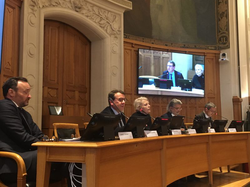
 ► Référence complète: Frison-Roche, M.A., Appréciation du lancement d'alerte et de l'obligation de vigilance au regard de la compétitivité internationale (" ("Assessment of Whistleblowing and Vigilance Duty with regard to international competitiveness"), in Benzoni, L., Deffains, B. et Frison-Roche, M.-A.(dir.) , Effectivité de la Compliance et Compétitivité internationale("Compliance Effectivity and International Competitiveness"), seminar co-organised by the Journal of Regulation & Compliance (JoRC) and the Centre de recherche sur l'Économie et le Droit (CRED) of the Panthéon-Assas University, November 4, 2021.
► Référence complète: Frison-Roche, M.A., Appréciation du lancement d'alerte et de l'obligation de vigilance au regard de la compétitivité internationale (" ("Assessment of Whistleblowing and Vigilance Duty with regard to international competitiveness"), in Benzoni, L., Deffains, B. et Frison-Roche, M.-A.(dir.) , Effectivité de la Compliance et Compétitivité internationale("Compliance Effectivity and International Competitiveness"), seminar co-organised by the Journal of Regulation & Compliance (JoRC) and the Centre de recherche sur l'Économie et le Droit (CRED) of the Panthéon-Assas University, November 4, 2021.
____
►This intervention is thematic ; it is articulated with those more general carried out in introduction by Bruno Deffains particularly focused on the necessarily global scope of Compliance and in conclusion by Laurent Benzoni on Compliance as a potential new pillar of industrial policy, the whole of the colloquium having been conceived by the three of us.
____
📅 this scientific event is part of the 2021 colloquia cycle, organized by the Journal of Regulation & Compliance (JoRC) and its Universities partners, on the general theme of Compliance Monumental Goals.
____
🚧 read the bilingual Working Paper, basis of this conference
____
►see the slides used during the conference
____
► Conference Summary: First of all and independently of the technical topic itself which, as the slides show, is focused on these two techniques based on Information which are the Whistleblowing and the Vigilance duty, it is essentiel to pose that the techniques themselves are conceived totally differently depending on whether Compliance Law is conceived as a mechanical process and totally binding to fully comply with all applicable regulations and to demonstrate it in advance, under the threat of terrible fines, this definition being the both completely frightening and meaningless since what these applicable regulations contains is irrelevant, in which case the prospect of competitiveness boils down to notions of costs and also procedural considerations of foreseeability and legal certainty; or if Compliance Law is conceived as a new and substantial branch of Law Ex Ante developed to detect and prevent the systemic crises being before us, of which the climate crisis is unfortunately the epigone and which requires above all Action, an action of such magnitude which requires the alliance of all forces, that of States, companies, courts and people, in a renewal of concepts, particularly legal ones, and in the indifference of territories, which puts Compliance immediately at its right level: the world, because the scientifically emerging crisis is global, the so-called "extraterritoriality" theme now being misnamed. From this new general conception, the Vigilance obligation, about which so much was said when it was imposed in France in 2017, is the advanced point, soon taken up in Europe and whose scope must be naturally global, because that Compliance Law is consubstantially global.
Taking up more technically the legal techniques of Compliance and confronting them with the Competitiveness of firms, it is necessary that these Compliance Tools do not harm this Competitiveness because Compliance Law , supporting immense ambitions, can only function through an alliance between political wills (with great pretensions, i.e. save the planet) and the entities which are able to concretize them (the crucial economic operators): the Compliance tools designed by legal systems must preserve the companies which put them in place and never favor their competitors.
On the basis of this principle, it is possible to assess these two legal techniques, namely the whistleblowing and the Vigilance duty, which both capture Information, which, as such, gives them a uniqueness and places them in the global Competition for Information.
Taking the whistleblowing first, it appears that its first beneficiary is the company itself since it discovers a weakness and can therefore remedy it. This is why, beyond the principle of protection of the whistleblower by the access of somebody to the legal statute conceived in France by the law known as "Sapin 2", it is criticized that all the incentives are not used for that the holder of such information transmits it to the manager and that the same law continues to require the absence of financial counterpart, the "heroic figure of the whistleblower and the refusal of his remuneration depriving the company of a means information and improvement. The American solution is better and tt is regrettable that the law transposing the European Directive maintains this ineffective conception. But French legislation has on the contrary developed the right incentive as to the person whom the information must be transmitted to is the manager, then externally if the latter does nothing. The solution is better that the American solution because the incentive is thus made to push the internal manager to act and put an remedy to the internal dysfunction, which increases the competitiveness of the company.
Even more, even if it seems counter-intuitive, the French Vigilance Duty greatly increases the competitiveness of the companies which are subject to it. Indeed, the 2017 Law by obliging them to prevent and fight against human rights and environment violations has tacitly given them all the necessary powers to do so, in particular the power to capture Information on third-party companies, including ( and even above all) those which are not subject to transparency obligations. In this, companies, insofar as they are personally responsible, hold a supervisory power over others, a power which allows Compliance Law to globalize and which, in the process, increases their own power. This is why the obligation of vigilance is in many respects a boon for the companies which are subject to it. The resumption of the mechanism by the next European Directive, itself indifferent to the territory, will only strengthen this global power on other firms, even foreign ones.
____
► This conférence et le document de travail servent de base à un article dans un ouvrage :
📝This conference and the Working Paper constitute the basis for an article:
📕 in its French version in the book Les buts monumentaux de la Compliance, in the Series 
📘 in its English version in the book Compliance Monumental Goals, in the Series 
_________
Oct. 14, 2021
Conferences
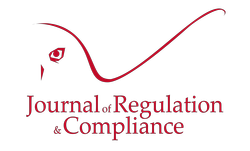
► Full Reference: Frison-Roche, M.A., Definition of Principle of Proportionality and Definition of Compliance Law ("Définition du Principe de Proportionnalité et Définition du Droit de la Compliance"), in Frison-Roche, M.-A. et Rapp, L. (dir.), Compliance and Proportionality. From the control of Proportionality to the proportionality of the Control ("Compliance et proportionnalité. Du contrôle de proportionnalité à la proportionnalité du contrôle") Compliance et Proportionnalité. Du contrôle de proportionnalité à la proportionnalité du contrôle, juges pour la Compliance, Colloque coorganisé par le Journal of Regulation & Compliance (JoRC) et la Chaire SIRIUS (IDETCOM), 14 octobre 2021.
____
📅 read the conference program
📅 this colloquium is part of the cycle of colloquia 2021 organised by the Journal of Regulation & Compliance (JoRC) and its partners on the Compliance Monumental Goals topic.
____
🚧 read the Working Paper on the basis of which the conference was done and from which the reactions took place.
____
►see the slides supporting the conference (in French)
► Conference Summary: The use of Proportionality t always limit powers is only justified when it is about sanctions, but sanctions are only one tool among others in Compliance Law, intended moreover to have little place in this Ex Ante branch of Law. And returning to the very nature of Compliance Law, which relies on operators, private or public, because they are powerful, then using proportionality to limite powers is detrimental to Compliance Law.
However, nothing requires that. Compliance Law is not an exception that should be limited. On the contrary, it is a branch of Law which carries the greatest principles, aimed at protecting human beings and whose Normativity lies in its "Monumental Goals": detecting and preventing future major systemic crisis (financial, health and climate ones).
However, literally the principle of Proportionality is: "no more powers than necessary, as many powers as necessary".
The second part of the sentence is independent of the first: this must be used.
Politics having fixed these Monumental Goals, the entity, in particular the company, must have, even tacitly, "all the necessary powers" to achieve them. For example the power of vigilance, the power of audit, the power over third parties. Because they are necessary to fulfill the obligations that these "crucial operators" have to perform as they are "in a position" to do so.
So instead of limiting the powers, the Principe of Proportionality comes to support the powers, to legitimize them and to increase them, so that we have a chance that our future is not catastrophic, perhaps better.
In this respect, Compliance Law, in its rich Definition, will itself have enriched the Principle of Proportionality.
____
► the conference and the Working Paper are the basis for an article in the book⤵
► in its French version 📕 Les Buts Monumentaux de la Compliance, in the Series 
► in its English version 📘Compliance Monumental Goals , dans la collection 
_________
Sept. 23, 2021
Conferences

 Full Reference: Frison-Roche, M.A., Ne jamais se passer des juges et des avocats dans le Droit de la Compliance ("Never exclude Judges and Lawyers in Compliance Law" , in Frison-Roche, M.-A., Morel-Maroger, J. et Schiller, S. (dir.), Quels juges pour la Compliance ("Which Judges for Compliance), Colloquium co-organised by the Journal of Regulation & Compliance (JoRC) and the CR2D of Dauphine University PSL, Raymond Aron Amphy, 23rd September 2021.
Full Reference: Frison-Roche, M.A., Ne jamais se passer des juges et des avocats dans le Droit de la Compliance ("Never exclude Judges and Lawyers in Compliance Law" , in Frison-Roche, M.-A., Morel-Maroger, J. et Schiller, S. (dir.), Quels juges pour la Compliance ("Which Judges for Compliance), Colloquium co-organised by the Journal of Regulation & Compliance (JoRC) and the CR2D of Dauphine University PSL, Raymond Aron Amphy, 23rd September 2021.
____
📅 Read the Colloquium programme
📅 This colloquium is a part in the colloquia cycle organized in 2021 by the Journal of Regulation & Compliance (JoRC) and it partners on the Compliance Juridictionalisation.
____
✏️A bilingual Working Paper on the topic "The role of the Judge in Compliance Law has been prepared to serve a basis for this conference : read this Working Paper
But for the reason detailed below, I preferred to use the time allotted to the introduction of the colloquium to develop rather what should had be an opening element for making it the entire topic of my intervention. : "Never do without judges and lawyers in Compliance Law".
Because before analyzing the role of judges, they still need to be in the Compliance system; this seems to us to be taken for granted, but it is not.
► Conference Summary: Due in particular to the large number of students and the fact that a long time ago when I arrived at Dauphine University I had created a Master in Economic Law with Martine Lombard in which I had included a course of "Economic Procedural Law" that I was teaching, since it was the moment to make this Colloquium "general introductory report", I therefore preferred to go further and focus the subject on something other than "The role of the judge in Compliance Law" , namely the very question of "the presence of judges and lawyers in Compliance Law".
This question of their presence or their absence, because they would be useless, even harmful to the Compliance effectiveness, either judges, or lawyers, or both together, is indeed the prerequisite for the reflection of " Which judges for Compliance? " because if we think of Compliance exclusively through the Ex Ante and efficiency, as it is often done in the West through artificial intelligence or in China in a system of surveillance and economic, technological and political efficiency , there is neither judge nor lawyer. It is therefore to this prerequisite that I devoted my speaking time, deferring to publication all the analyzes that I had prepared on "The role of the judge in Compliance Law", to which everyone can refer by consulting the preparatory work.
It is indeed imperative to always keep in mind the need to never exclude Judges from Compliance systems, although this can be conceivable since they are Ex Ante mechanisms, which often aim by nature to avoid the trial. (example of the Deffered Prosecution Agreement), because when there is a judge, the procedural mechanisms and Due Process principle are associated with it: the power of Compliance Law does not go wrong.
However, Compliance Law is the Law of the future, that which will seize the immense challenges to be resolved today for tomorrow and it is not from the specific laws against corruption, such as FCPA or the French law known as "Sapin 2 law", which are only examples, but from two enormous "monumental" subjects that are on the one hand Data and on the other hand Climate that Compliance Law is building, with the means that are required. But so that the rule "all the means necessary for the ends", which already tended to govern Regulatory Law of which Compliance Law is the exponential extension, does not carry all, one needs lawyers. Because the lawyers contradict. And ask. Ask judges and carry the actions of ordinary people for their subjective rights to be shaped. As Motulsky affirmed it in its thesis, written during the Second World War, before after this enormous systemic disaster inventing the "general procedural law".
____
The Working Paper which had not be exploited during the conference will be the bais for the article in the book :
📕 in its French version La juridictionnalisation de la Compliance, in the Series 
📘 in its English version Compliance Jurisdictionalisation, in the Series 
___
📅 Ce colloque s'insère dans le cycle de colloques 2021 organisé par le Journal of Regulation & Compliance (JoRC) et ses partenaires autour de la Juridictionnalisation de la Compliance.
_________
Sept. 16, 2021
Conferences
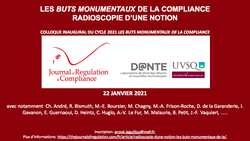
 Full reference: Frison-Roche, M.-A., Rapport de synthèse (Conclusion) in André C., Frison-Roche, M.-A., Malaurie, M. and Petit, B., Les Buts monumentaux de la Compliance (Compliance Monumental Goals), Colloquium co-organised by the Journal of Regulation & Compliance (JoRC) and the Laboratoire Dante of Paris-Saclay University,
Full reference: Frison-Roche, M.-A., Rapport de synthèse (Conclusion) in André C., Frison-Roche, M.-A., Malaurie, M. and Petit, B., Les Buts monumentaux de la Compliance (Compliance Monumental Goals), Colloquium co-organised by the Journal of Regulation & Compliance (JoRC) and the Laboratoire Dante of Paris-Saclay University,
____
📅 September 16, 2021.
🧭 Maison du Barreau, 12 place Dauphine 75004 Paris
____
► Conclusions' Summary: Based on the multiple contributions of the day, the first part of this synthesis focuses on the practical interest of having Monumental Goals attached to compliance techniques.Conceptually defining these Monumental Goals as normative legal rules of Compliance Law has the first practical advantage of making clear this scattered and almost incomprehensible material, allowing us to better understand it. The second practical advantage is to bring together the various branches of law in that they all contain compliance mechanisms, the points of contact thus discerned leading to a unification of technical legal rules. The third practical advantage is to provide the various sources of law concerned with a means of applying and interpreting the law. The fourth practical advantage is to give meaning to all these technical provisions.
In the second part of this synthesis, it appeared that these practical considerations therefore justify undertaking the "conceptual adventure". This one can take three pillars, in this "cathedral" that Dominique de la Garanderie designed, this "monument" corresponding well to the adjective Monumental which is better suited to these Goals than does the adjective "Fundamental", because it is a question of building, of building for a future which is not fatal. The first conceptual pillar consists in conceptualizing the Monumental Goals so that the Compliance Law finding a substantial meaning thus gives in a normative way a meaning to all the technical provisions which serve it in an instrumental way. The second conceptual pillar consists of giving everyone their place, that of public authority, that of the company and that of the population, each concerned and each not having to take the place of the other in the determination of the monumental goals, the company being in particular free in the design of the means while the political authority being in charge of drawing the Goals, the company being able to copy them on its own account. This conception does not depend on legal systems but on goals and legitimacy, in particular on the definition chosen for what is a company. The third conceptual pillar derives precisely from the humanist conception that one can claim to have of the Compliance Monumental Goal, risk management being only a means to achieve it. Humanism effectively carried by Compliance, taken on their own account by the companies alone capable of making them concrete, is what makes it possible to distinguish texts that are nevertheless technically similar, depending on whether they apply in Rule of Law systems or in systems which are note governed by the Rule of Law Principle.
This is why the technical future of Compliance Law lies in this conceptual adventure that it is necessary to lead.
_________
📝 read the program of this colloquium
🎥 see Marie-Anne Frison-Roche's conclusion in video (in French, with English subtitles)
✏️ read the notes translated in English on which this conclusion is based
_______
📅 This colloquium is part of the Cycle of colloquium 2021 organized by the Journal of Regulation & Compliance (JoRC) and its partners around Compliance Monumental Goals.
📘 This manifestation is in French but the interventions will be part of an English collective book directed by Marie-Anne Frison-Roche, Compliance Monumental Goals, co-edited by the JoRC and Bruylant.
📕 An equivalent book in French, Les Buts Monumentaux de la Compliance, directed by Marie-Anne Frison-Roche, will be co-published by the JoRC and Dalloz.
June 26, 2021
Conferences
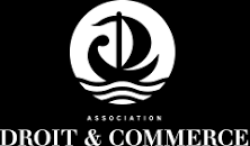
►Full reference : Frison-Roche, M.-A., Conclusion ("Rapport de synthèse"), in Droit et Commerce, La concurrence dans tous ses états, Deauville, 25th and 26th of June 2021.
____
📅 This event was initially scheduled for June 22 and 23, 2020, then due to the health crisis, it was postponed to March 27 and 28, 2020; it finally takes place a year later.
📝 Read the general presentation of the colloquium and the program. (in French)
________
June 23, 2021
Conferences
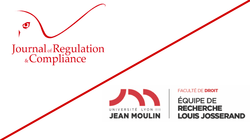
 Full reference: Frison-Roche, M.-A., The judge-judged: Articulate words and things face to the difficult conflicts of interest, in L'entreprise instituée Procureur et Juge d'elle-même par le Droit de la Compliance, colloquium co-organized by the Journal of Regulation & Compliance (JoRC) and Lyon 3 Law School, 23rd of June 2021.
Full reference: Frison-Roche, M.-A., The judge-judged: Articulate words and things face to the difficult conflicts of interest, in L'entreprise instituée Procureur et Juge d'elle-même par le Droit de la Compliance, colloquium co-organized by the Journal of Regulation & Compliance (JoRC) and Lyon 3 Law School, 23rd of June 2021.
____
This conference was in French ; the Working Paper on which this conference was based is in French and in English: The judge-judged: Articulate words and things face to the stressful conflicts of interest
📅 June 23, 2021, 9h30 - 18h30
🧭 Lyon, Lyon 3 Law School, "Salle de la Rotonde" and online
____
📊 Read the slides on which this conference is based (in French)
🎥 See the video of this conference.
📝 Read the general program of this colloquium (in French)
📝 Read the working paper on which this conference is based (in English)
___
📅 This colloquium is part of the cycle of colloquia in 2021 organized by the Journal of Regulation & Compliance (JoRC) and its partners about Compliance Juridictionnalization.
📕 📘 The conference is the first basis for the writing of an article, forthcoming in a book whose the French version is La juridictionnalisation de la Compliance, co-published by the Journal of Regulation & Compliance (JoRC and Dalloz, and whose the English version Compliance Juridictionnalisation, is co-published by the Journal of Regulation & Compliance (JoRC) and Bruylant.

____
🔻 Summary of the conference: read below.
May 17, 2021
Conferences
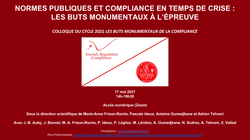
 Référence complète: Frison-Roche, M.-A., La place des entreprises dans la création et l'effectivité du Droit de la Compliance en cas de crise in (dir.) Les normes publiques et la Compliance en temps de crise : les buts monumentaux à l'épreuve, colloque coorganisé par le Journal of Regulation & Compliance (JoRC) et la Faculté de droit de Montpellier, 17 mai 2021.
Référence complète: Frison-Roche, M.-A., La place des entreprises dans la création et l'effectivité du Droit de la Compliance en cas de crise in (dir.) Les normes publiques et la Compliance en temps de crise : les buts monumentaux à l'épreuve, colloque coorganisé par le Journal of Regulation & Compliance (JoRC) et la Faculté de droit de Montpellier, 17 mai 2021.
Consulter les slides sur lesquelles s'appuie cette conférence.
Regarder la vidéo de cette conférence.
Lire le programme général de ce colloque
Lire le document de travail sur la base duquel la conférence a été élaborée.
___
Ce colloque s'insère dans le cycle de colloques 2021 organisé par le Journal of Regulation & Compliance (JoRC) et ses partenaires autour des Buts monumentaux de la Compliance.
Les interventions serviront de première base à la réalisation d'un ouvrage dirigé par Marie-Anne Frison-Roche, dont la version française, Les Buts monumentaux de la Compliance, est co-éditée par le JoRC et Dalloz et dont la version anglaise, Compliance Monumental Goals, est co-éditée par le JoRC et Bruylant.
____
Résumé de la conférence : Il s'agit d'observer la façon dont les entreprises agissent lorsque la crise advient et l'impact produit sur les "Buts Monumentaux de la Compliance". Il apparaît que les entreprises ont aidé, soit sur l'ordre des Autorités publiques, soit de leur propre initiative. Toute "épreuve" étant une "preuve", la leçon à tirer de la preuve sanitaire est à retirer face à la crise environnementale dont nous sommes déjà informés.
La crise montre la place et le rôle des entreprises pour que tout d'abord survive l'effectivité du Droit de la Compliance par le souci maintenu de ses buts, grâce à l'aide requise ou spontanée des entreprises.
Mais plus encore l'on a pu observer des entreprises actives en raison de leur "position" pour des buts qui n'étaient pas les leurs, comme l'environnement. L'on retrouve alors la définition générale du Droit de la Compliance comme l'alliance en Ex Ante entre Autorités publiques et opérateurs privés cruciaux, pour maîtriser le futur. Ce sont les juges qui les assignent à cette alliance, ici et maintenant. La crise sanitaire en accélère la construction.
March 31, 2021
Conferences

 Full reference: Frison-Roche, M.-A., Compliance et arbitrage. Rapport de synthèse: un adossement (Compliance and Arbitration: a Backing. Conclusion), in Frison-Roche, M.-A. & Racine, J.-B., Compliance et Arbitrage (Compliance and Arbitration), Colloquium co-organised by the Journal of Regulation & Compliance (JoRC) and the Centre de recherches sur la Justice et le Règlement des Conflits (CRJ) of Panthéon-Assas University (Paris II), with the support avec the International Court of Arbitration, Paris, 31st of March 2021
Full reference: Frison-Roche, M.-A., Compliance et arbitrage. Rapport de synthèse: un adossement (Compliance and Arbitration: a Backing. Conclusion), in Frison-Roche, M.-A. & Racine, J.-B., Compliance et Arbitrage (Compliance and Arbitration), Colloquium co-organised by the Journal of Regulation & Compliance (JoRC) and the Centre de recherches sur la Justice et le Règlement des Conflits (CRJ) of Panthéon-Assas University (Paris II), with the support avec the International Court of Arbitration, Paris, 31st of March 2021
_____
Read the program of this colloquium
See Marie-Anne Frison-Roche's conclusion in video (in French, with English subtitles)
These notes of the conclusion have been written as the colloquium took place.
See the video of the entire colloquium (in French, with English subtitles)
___
This colloquium is part of the Cycle of colloquium 2021 organized by the Journal of Regulation & Compliance (JoRC) and its partners around the topic Compliance Juridictionnalization.
This manifestation is in French but the interventions will be the basis for a specific chapter of the English collective book directed by Marie-Anne Frison-Roche, Compliance Juridictionnalization, co-published by the JoRC and Bruylant.
An equivalent book in French, La Juridictionnalisation de la Compliance, directed by Marie-Anne Frison-Roche, will be co-published by the JoRC and Dalloz.
Read the notes established for the conclusion below ⤵️
March 31, 2021
Conferences
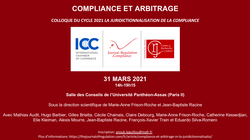
 Référence complète: Frison-Roche, M.-A.,Compliance et Arbitrage : un adossement, rapport de synthèse in Frison-Roche, M.-A. & Racine, J.-B. (dir.) Compliance et Arbitrage, Colloque coorganisé par le Journal of Regulation & Compliance (JoRC) et le Centre de recherches sur la Justice et le Règlement des Conflits (CRJ) de l'Université Panthéon-Assas (Paris II), avec le soutien de la Cour Internationale d'Arbitrage, Paris, 31 mars 2021.
Référence complète: Frison-Roche, M.-A.,Compliance et Arbitrage : un adossement, rapport de synthèse in Frison-Roche, M.-A. & Racine, J.-B. (dir.) Compliance et Arbitrage, Colloque coorganisé par le Journal of Regulation & Compliance (JoRC) et le Centre de recherches sur la Justice et le Règlement des Conflits (CRJ) de l'Université Panthéon-Assas (Paris II), avec le soutien de la Cour Internationale d'Arbitrage, Paris, 31 mars 2021.
____
🗓️ Lire le programme de ce colloque
____
✏️Le rapport de synthèse a été réalisé au fur et à mesure que se déroulait le colloque : se reporter aux notes prises durant le colloque.
____
Voir le rapport de synthèse en vidéo
Voir l'intégralité du colloque en vidéo.
___
📅 Ce colloque s'insère dans le cycle de colloques 2021 organisé par le Journal of Regulation & Compliance (JoRC) et ses partenaires autour de la Juridictionnalisation de la Compliance.
📕 Les interventions ont servi de première base à la réalisation d'un titre dans l'ouvrage dirigé par Marie-Anne Frison-Roche, dont la version française, La juridictionnalisation de la Compliance, est co-édité par le Journal of Regulation & Compliance (JoRC) et Dalloz.
📘 Elles ont été de la même façon la première base pour la version anglaise de l'ouvrage, Compliance Juridictionalisation, co-édité par le Journal of Regulation & Compliance (JoRC) et Bruylant.
_________
March 31, 2021
Conferences

 ► Référence complète : Frison-Roche, M.A., Ex Ante Compliance, in Gaia-X, Towards Automated Compliance in the Data Economy, en ligne, 31 mars 2021
► Référence complète : Frison-Roche, M.A., Ex Ante Compliance, in Gaia-X, Towards Automated Compliance in the Data Economy, en ligne, 31 mars 2021
____
► Présentation générale de l'intervention : Cette courte intervention vise à expliquer l'apport essentiel du Droit de la Compliance pour la construction et la durabilité d'une structure comme GAIA-X.
____
March 22, 2021
Conferences

General reference : Frison-Roche, M.-A., The Future of legal uncertainty notion with regards with the treatment of extraordinary situations: economic crisis (L'avenir de la notion d'insécurité juridique au regard du traitement des situations extraordinaires: crise économique), in "Insécurité juridique : émergence d'une notion ?", Cour de cassation, 22nd of March 2021.
Read the general program of the colloquium (in French)
See the first part of the colloquium (in French)
See the second part of the colloquium in which Marie-Anne Frison-Roche speaks (in French)
March 17, 2021
Conferences

 Full reference : Frison-Roche, M.-A., The Potential of Compliance Law (Les potentialités du Droit de la Compliance), conference given to Muriel Fabre-Magnan's students, Paris I, 17th of March 2021.
Full reference : Frison-Roche, M.-A., The Potential of Compliance Law (Les potentialités du Droit de la Compliance), conference given to Muriel Fabre-Magnan's students, Paris I, 17th of March 2021.
_____
This conference has been designed for Paris I's students following a Law cursus, specialized in Law of obligations and especially in Tort Law.
It therefore aims to show the technical content of Compliance Law and what it can become.
It has been followed by a debate with students.
Summary: Compliance Law is a branch of Law in the process of being born. We can be sure of its existence in the French positive Law, through the technical examination of laws called "Sapin 2" (2016) and "Vigilance" (2017). It appears at radically new. It is the reason why it is perceived as an attack, especially from United-States and we rather use legal knowledge to counter it. But if we study the historical reasons of its adoption in the United-States and the "monumental goals", whether they are negative (what should not appear in the future) or positive (what should appear in the future), we can measure that this Law, which is essentially Ex Ante could be the means through which scattered but legitimate public authorities and powerful but illegitimate big firms could ally. Therefore potentially Compliance Law could be the worst, simple tool of obedience (mechanical "conformité") or the best: what through which we could do something face to global problems, like global warming, or what we would accept to look in the face: the care for others.
Read the slides on which this conference was based (in French)